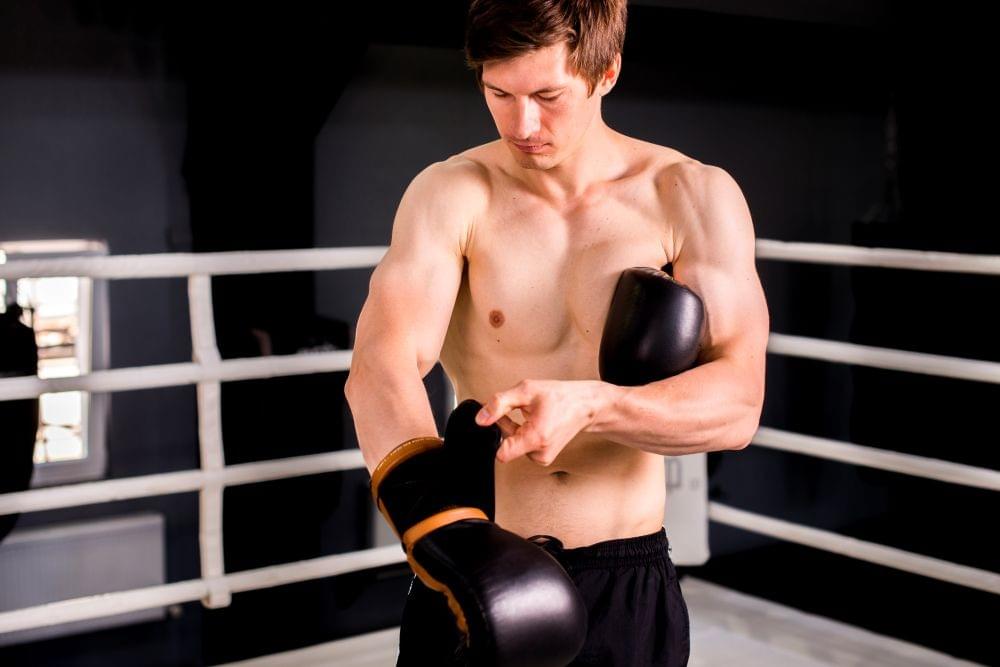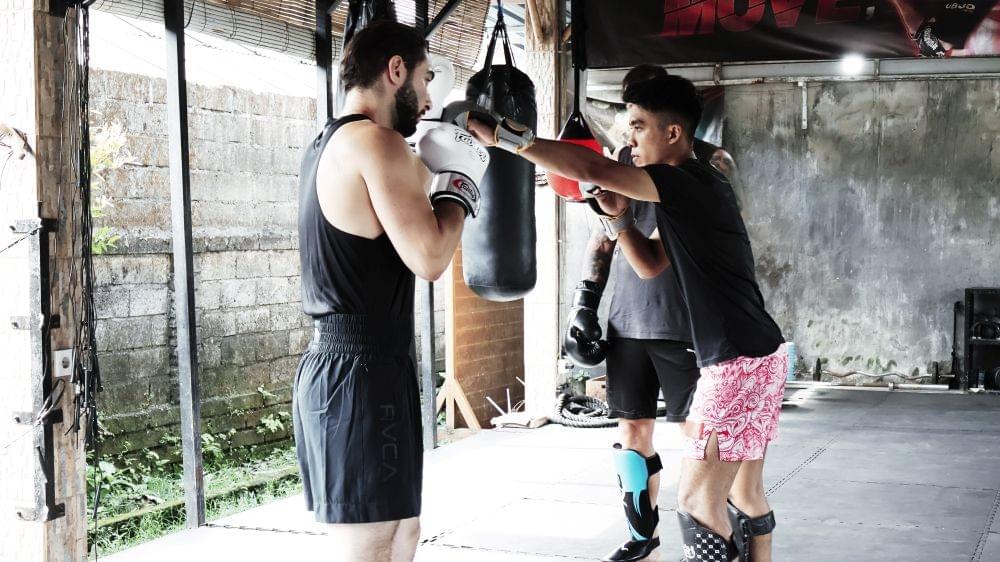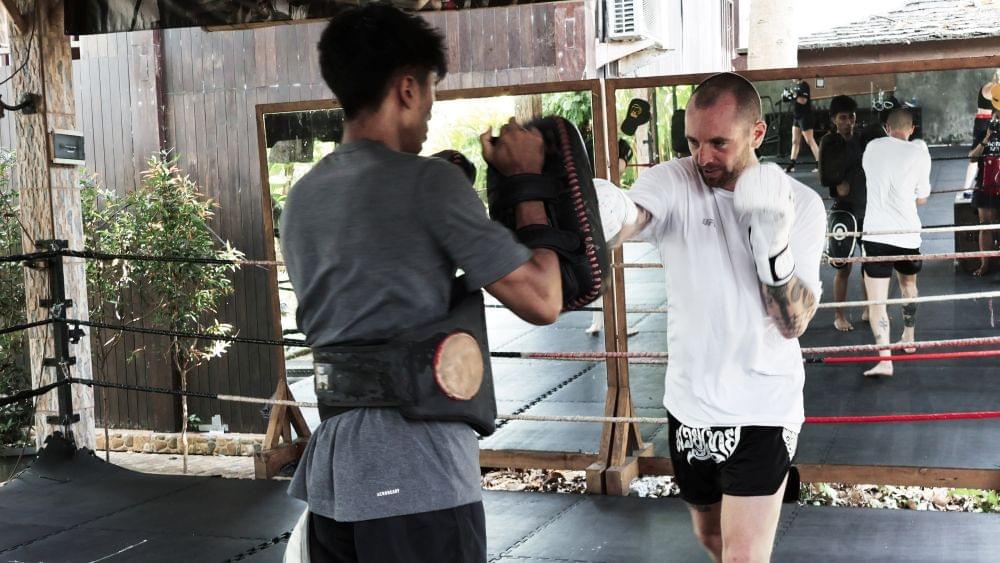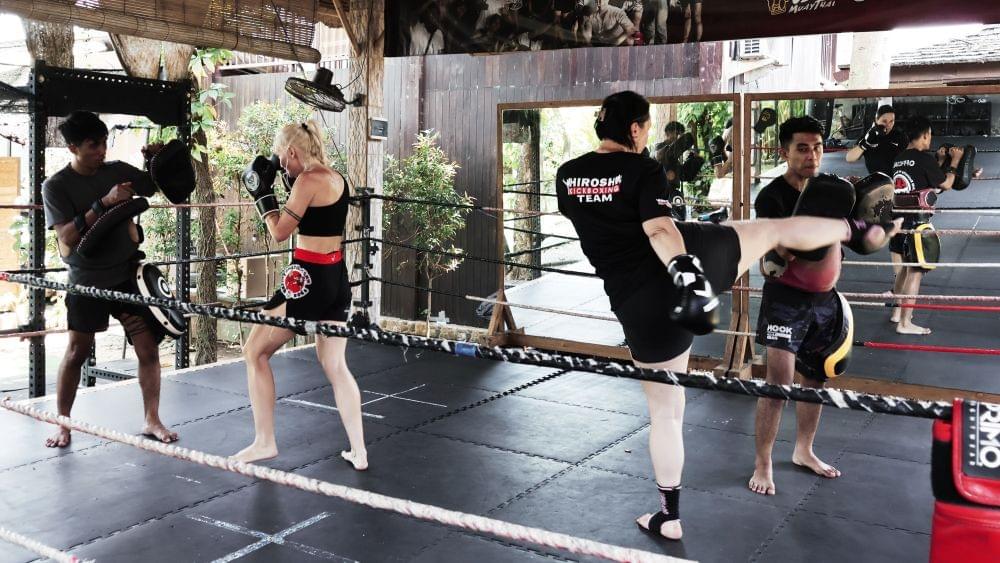If you’ve ever peeled off your gloves after an intense Muay Thai session and been hit with that unmistakable odor, you already know, glove hygiene isn’t optional. It’s essential. Knowing how to clean Muay Thai gloves properly can save you from bacteria build-up, bad smells, and even skin infections.
Why Glove Hygiene Matters

During every training session, sweat and moisture soak into your gloves. Over time, that creates the perfect breeding ground for bacteria and fungi. These microbes can lead to unpleasant odors, skin irritation, and even infections.
Beyond hygiene, dirty gloves degrade faster. The inner foam breaks down, the leather cracks, and the stitching weakens. By maintaining your gloves properly, you extend their lifespan and keep your training safe, fresh, and professional.
Materials & Risks to Consider
Not all gloves are made the same, and understanding your gear’s material is crucial before deciding how to clean Muay Thai gloves properly. Using the wrong cleaning method or harsh solutions can easily ruin your gloves, so here’s what you need to know about different materials and the risks involved.

Leather Gloves
Leather gloves are popular among serious Muay Thai and boxing practitioners because of their durability, flexibility, and natural feel. However, leather is porous; it absorbs sweat and can dry out or crack if not cared for properly.
How to maintain: Use a soft, damp cloth with mild soap or a leather-specific cleaner. After wiping, condition the leather occasionally with a small amount of leather balm to keep it supple. Avoid alcohol wipes, harsh detergents, or soaking the gloves in water; these can strip away the natural oils and cause the leather to stiffen or peel.
Synthetic (PU or Vinyl) Gloves
Synthetic gloves are often more affordable and easier to clean, but they require careful handling, too. The surface can handle mild disinfectants, but strong chemicals or excessive moisture can weaken the coating and cause peeling over time.
How to maintain: Wipe with a slightly damp microfiber cloth and a drop of gentle soap. Disinfect using a diluted vinegar solution or non-alcoholic spray. While they don’t require conditioning like leather gloves, regular drying and airing out are essential to prevent odor buildup.
Step-by-Step Cleaning Protocol
1. Wipe After Every Session
Right after training, take two minutes to wipe down your gloves. This simple step is the most effective way to stop bacteria and odor before they start. Open your gloves wide and use a clean microfiber towel to gently blot away moisture from the inside lining. Avoid scrubbing too hard, as it can push sweat deeper into the padding.
Then, use a slightly damp cloth to clean around the seams, thumb area, and straps; these are high-sweat zones that often get overlooked. Making this a habit after every class is one of the most powerful tricks for how to keep boxing gloves clean without adding extra work later.
2. Disinfect the Interior
After wiping off the sweat, disinfecting the interior is essential for killing odor-causing bacteria. Mix a 50/50 solution of clean water and white vinegar, or use a natural sports gear disinfectant spray. Lightly mist the inside of each glove; it should feel barely damp, not soaked. Let the solution sit for a few minutes to do its job, then gently blot the inside again with a dry towel.
Avoid using alcohol-based sprays or bleach, as they can damage the inner fabric and irritate your skin. A regular disinfecting routine keeps your gloves hygienic, especially in humid climates like Bali, where moisture lingers longer.
3. Clean the Exterior
The outer surface of your gloves collects dirt, oils, and bacteria from constant handling. Keeping it clean not only improves appearance but also extends the material life. For leather gloves, use a small drop of mild soap mixed in warm water and wipe gently with a damp microfiber cloth. Follow up immediately with another cloth moistened with plain water to remove any soap residue.
Once dry, apply a small amount of leather conditioner every few weeks to prevent cracking. For synthetic gloves, the same gentle wipe-down works well, just skip the conditioning. Cleaning the exterior regularly preserves the glove’s finish and ensures your gear looks as professional as it feels.

4. Deodorize and Remove Moisture
Even when you’ve cleaned and disinfected your gloves, moisture can still linger inside, and that’s what creates long-term odor. To solve this, insert glove deodorizers such as activated charcoal bags, cedar wood inserts, or silica pouches immediately after cleaning. These absorb excess moisture and neutralize odor overnight.
You can also make a simple home remedy using a breathable pouch filled with baking soda. Leave your gloves in a well-ventilated space (never in your gym bag) for at least 8 to 12 hours. This step keeps them dry, odor-free, and ready for your next training session.
5. Deep Clean Weekly
Once a week, give your gloves a complete refresh. Repeat the first three steps thoroughly, paying special attention to seams and finger creases where sweat accumulates. Then, place your gloves near a fan or in an air-conditioned room to ensure consistent airflow inside the lining.
Leave them open for 12 to 24 hours so they can fully dry. If your gloves are leather, apply a thin layer of conditioner afterward to keep them flexible and protected. Finally, don’t forget to wash your hand wraps at the same time; dirty wraps can quickly undo all your cleaning efforts by reintroducing bacteria.
When to Replace Your Gloves?
Even the best-maintained gloves have a lifespan. Over time, the constant impact, moisture, and wear gradually break down the internal padding and outer material. A clear sign that it’s time to replace your gloves is when they start to lose their shape or feel flat upon impact. This means the inner foam has compressed and can no longer absorb shock properly.
You might also notice persistent odors that linger even after deep cleaning, a sign that bacteria have penetrated beyond the surface layers. Cracked leather, torn linings, or weakened wrist straps are other red flags that your gloves are past their prime. Training with worn-out gloves not only increases the risk of hand injuries but can also spread bacteria to your wraps and other equipment.

Keeping your gloves clean is just one part of training like a true martial artist. At Ubud Muay Thai, we believe that discipline in small habits, like caring for your gear, builds stronger, more focused fighters.
If you’re ready to sharpen your skills, improve your fitness, and train in a supportive community, join our Muay Thai and Boxing classes in Ubud, Bali.

